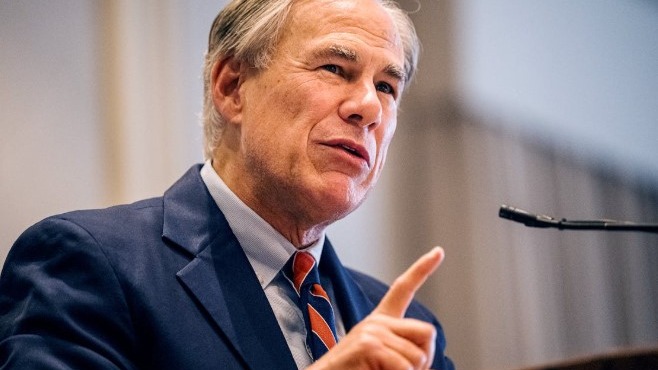
Texas Redistricting: A Bold Move Towards GOP Expansion
In a decisive move shaping the political landscape of Texas, Governor Greg Abbott recently signed into law a congressional redistricting map that aims to reshape the state’s representation in the U.S. Congress. This new map, influenced by former President Donald Trump’s directive, seeks to add five GOP-friendly districts ahead of the 2026 elections. Abbott touted the legislation on social media, calling it the "One Big Beautiful Map," asserting that this change would ensure "fairer representation in Congress" and that it would lead to a predominately Republican state delegation.
What Motivated the Redistricting?
The redrawing of Texas’s congressional map stems from a strategy to enhance Republican dominance in the state that has been steadily shifting over the years. After the last census, the allocation of congressional seats shifted, providing an opportunity for party gains through redistricting. In Texas, where Republicans hold a significant majority in the legislature, the passage of such a map was nearly guaranteed despite pushback from Democrats.
The Controversy Looming Over the New Map
The new congressional map is expected to ignite legal challenges from Texas Democrats, who believe that the redistricting process undermines minority representation. Earlier this year, Democratic legislators attempted to delay the voting process by fleeing the state, bringing national attention to their cause. The Supreme Court’s approval of partisan gerrymandering means the Democrats will likely hinge their legal arguments on the Voting Rights Act, which mandates that minority communities must remain intact to ensure proper representation. Despite this, Republican leaders have countered that the new map actually fosters greater diversity by creating more majority-minority seats compared to the previous setup.
A Shift in Political Landscape
With this redistricting, the dynamics of Congressional races in Texas could radically change. Incumbent Democrats in districts that are now more Republican-leaning will face tough decisions regarding their political futures, potentially running against fellow Democrats in neighboring districts to maintain their positions. This represents a significant test of current political affiliations and could serve as a barometer for the GOP's stronghold in traditionally Democratic areas.
Local Sentiment and Future Implications
The implications of the redistricting extend beyond mere political maneuvering. Engaging voters in the state’s evolving political narrative raises questions about the overall ethos of representation. As young voters express an increasing demand for equitable districting practices, this scenario highlights a pervasive tension between securing party power and ensuring impartial representation.
The long-term effects of this redistricting could influence not only congressional power dynamics but also local governance and community initiatives across Texas. If the GOP manages to solidify its gains through these newly drawn districts, citizens may find themselves facing policies that lean heavily towards party lines, impacting various aspects of life in Texas.
The Bigger Picture
This redistricting debate mirrors larger national discussions about the integrity of electoral processes and the importance of fair representation. As Texas goes, so often goes the nation, and what unfolds in the Lone Star State can provide invaluable insights into broader trends in U.S. politics. Will the push for more partisan control undermine the democratic process, or will it invigorate a challenge that could reshape voter engagement?
As the 2026 elections approach, it’s crucial for Texas voters to engage in active dialogue about representation and to straightforwardly assess how these redistricting efforts will shape their government. The potential repercussions of this redistricting can serve as a springboard for new policy discussions, underscoring the necessity for transparency and fairness in the political domain.
Get Involved!
As the political landscape evolves in Texas, getting involved in local civic discussions is vital. Engaging with community forums, advocating for fair representation, and staying informed on legislative happenings can help ensure that all voices are heard in the future of Texas governance.
 Add Element
Add Element  Add Row
Add Row 



Write A Comment